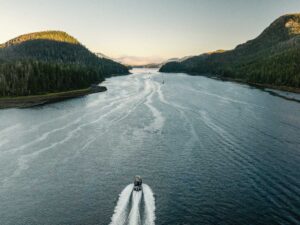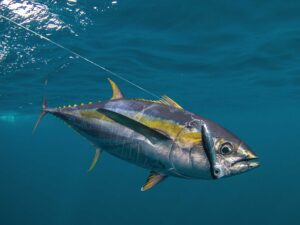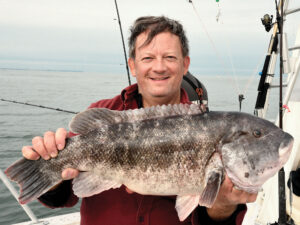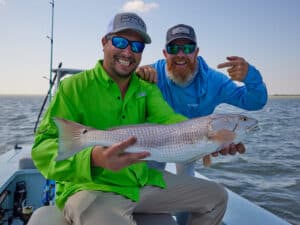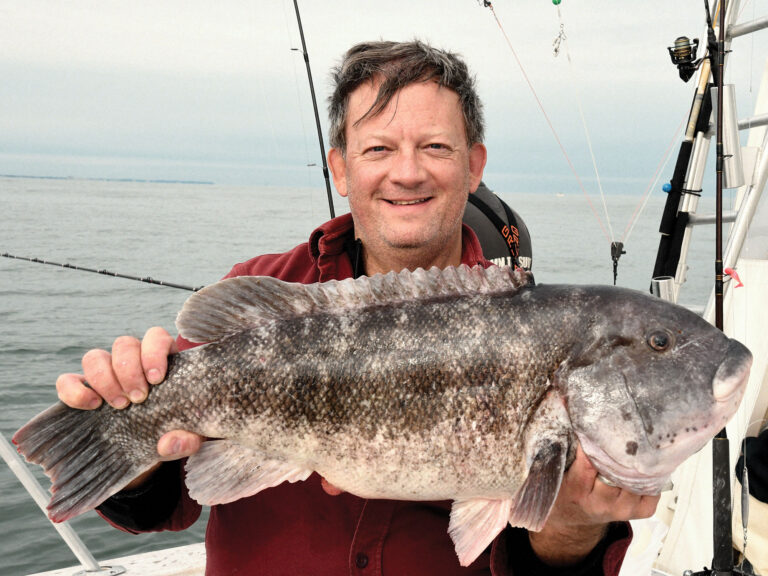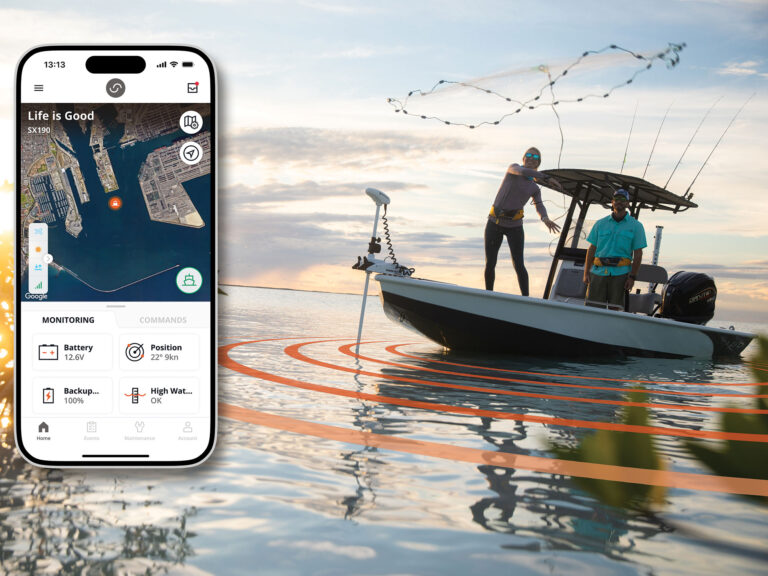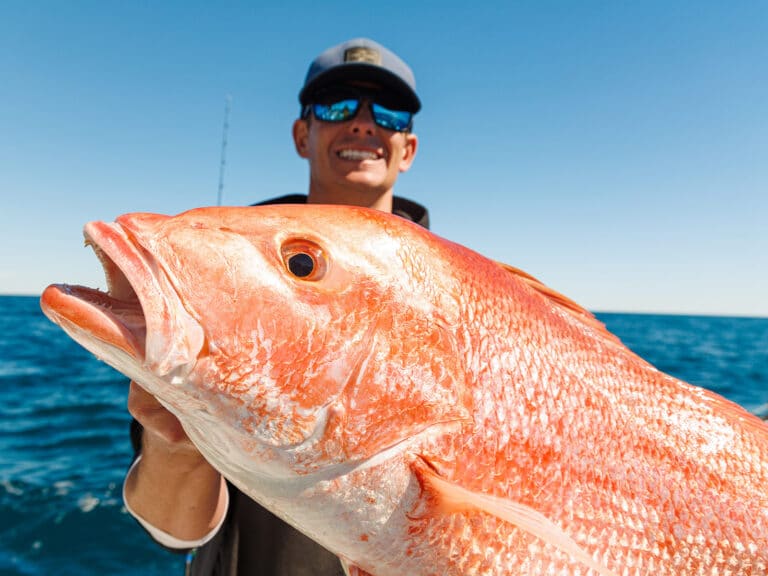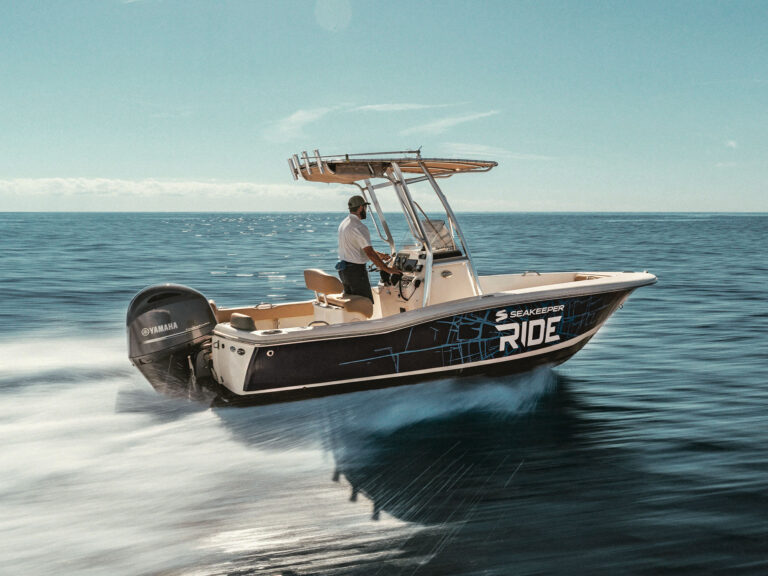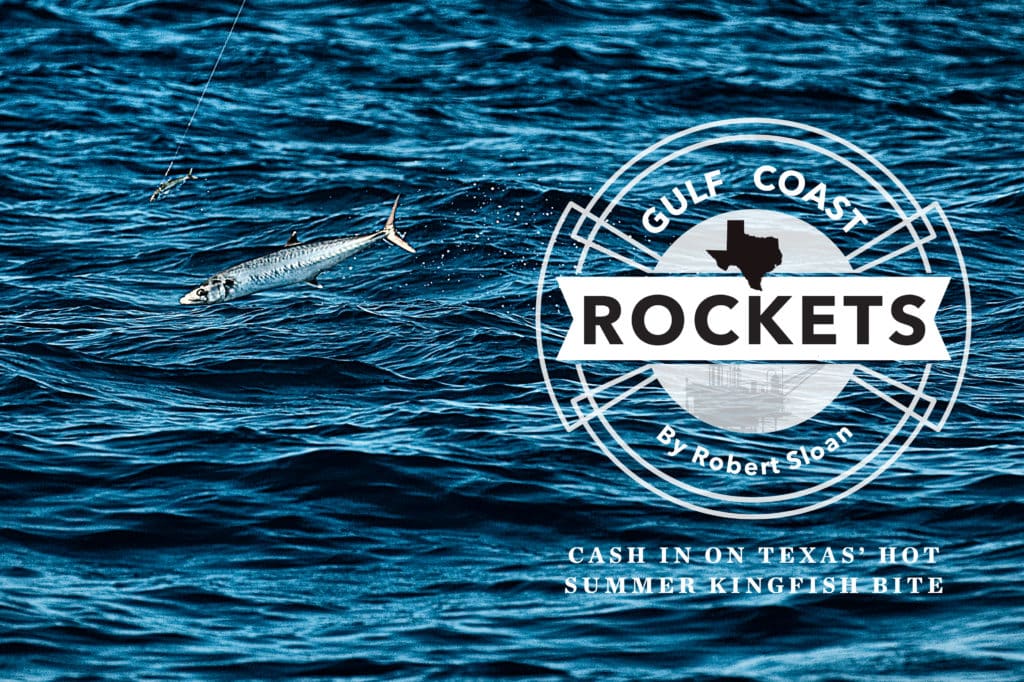
FARSIGHTED: Don’t leave the dock without good binoculars to spot bird activity, baitfish pods and fish feeding on the surface.
LIKELY SPOTS: Target kings around oil and gas production platforms, buoys, behind anchored shrimp boats, along rips, under birds and around bait pods.
WHERE TO LOOK: Search for structure, anchored shrimpers, or schooling baitfish in clear, dark-green water from 15 to 50 miles offshore.
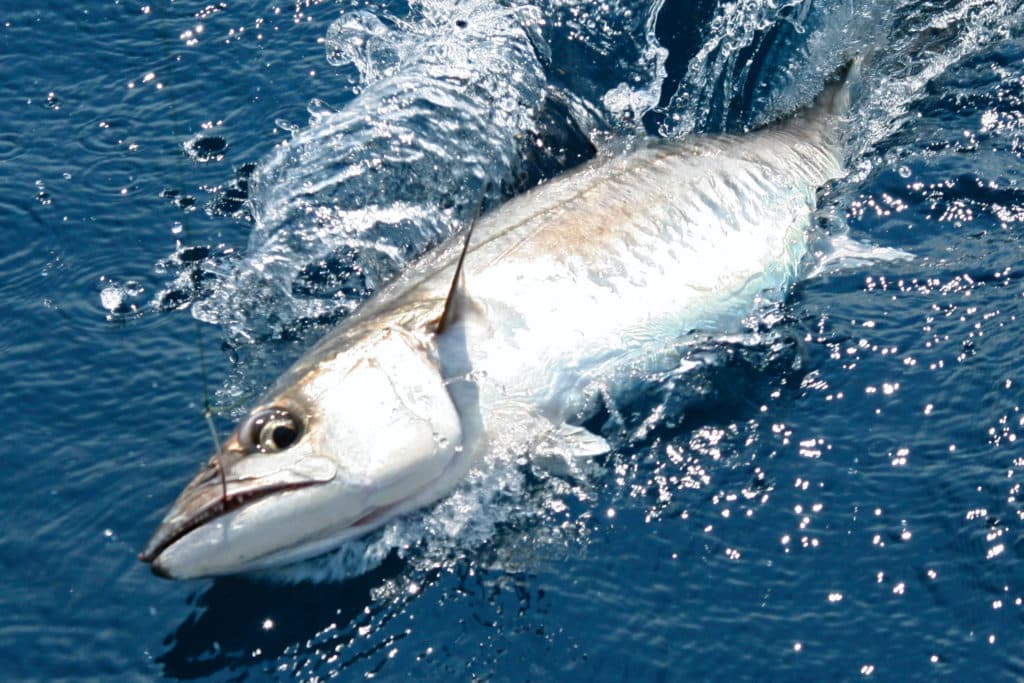
Along the Texas coast, fishing for speedy kingfish is a summer smash hit. The fish run big, they are abundant, easy to find and more than willing to attack a variety of lures and natural baits. But here’s the real kicker: Kings love to smash topwaters — in fact, they are one of the most exciting species to target with surface lures.
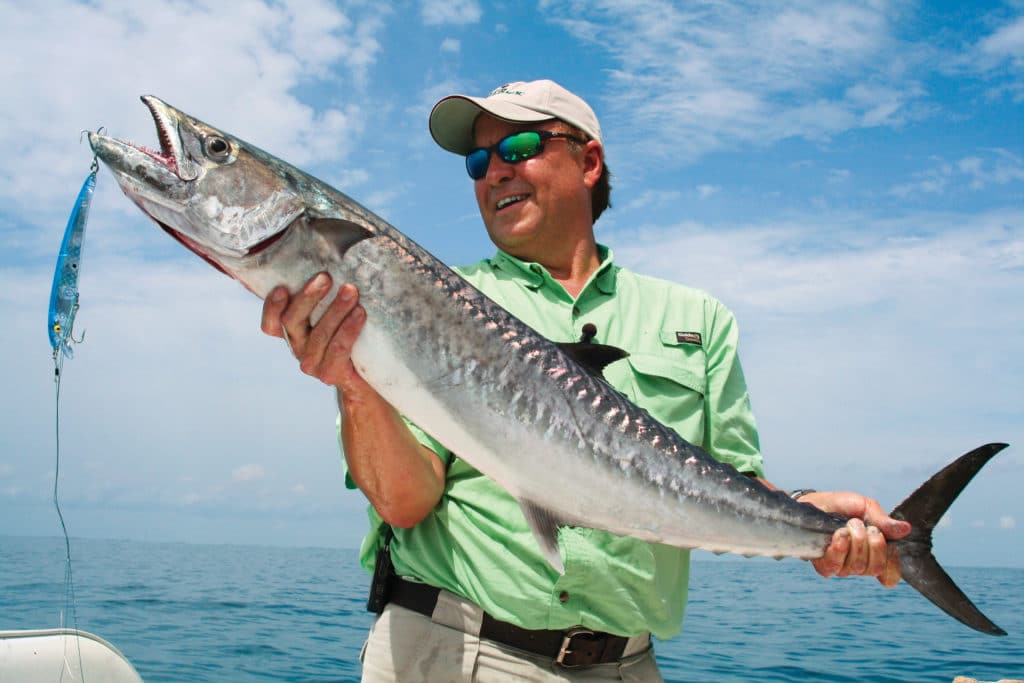
Kingfish are opportunistic feeders that rarely pass up a school of baitfish. They make good use of their great speed and sharp dentures to slash baits on the run, then double back to consume their dead or injured victims.
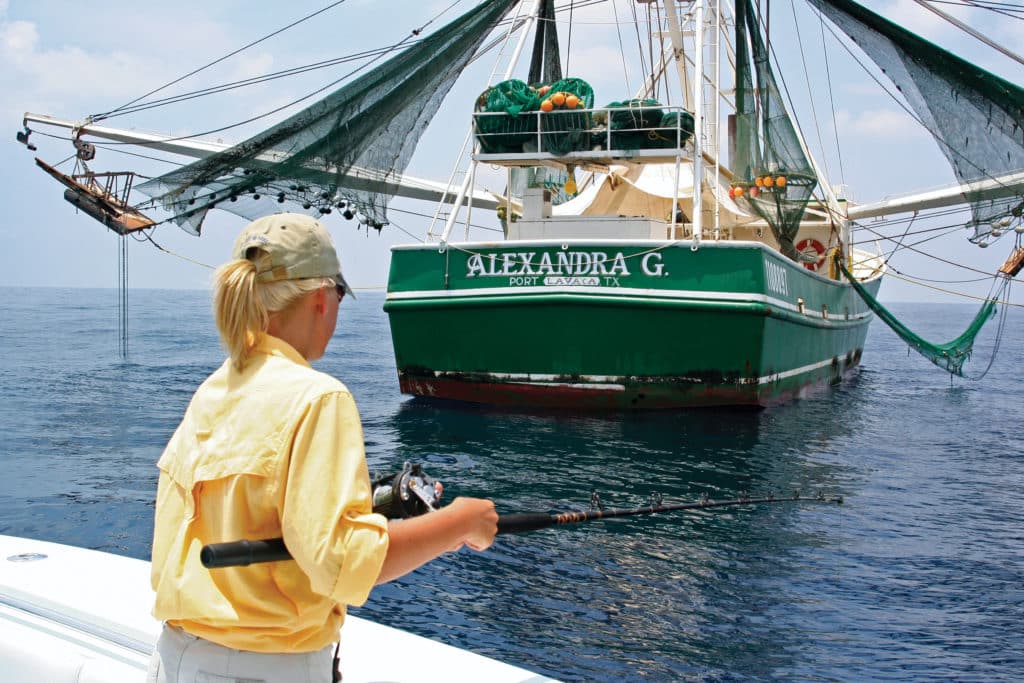
Wire leaders are a must for kings. Their razor-sharp teeth will otherwise snip through your mono and even braid with ease. I use 60-pound Offshore Angler No. 6 leader wire for just about all my kingfish outings, whether trolling or casting. Though, at times — usually when fishing larger baits — I go up to 80-pound No. 7 wire. By the way, the Offshore Angler wire is dark brown, far less conspicuous than silver. It also has a small diameter; No. 6 wire is .016-inch, and No. 7 is .018-inch, making it desirable for the same reason. Plus it makes a haywire twist — the favored wire connection for swivels, hooks and lures — more easily.
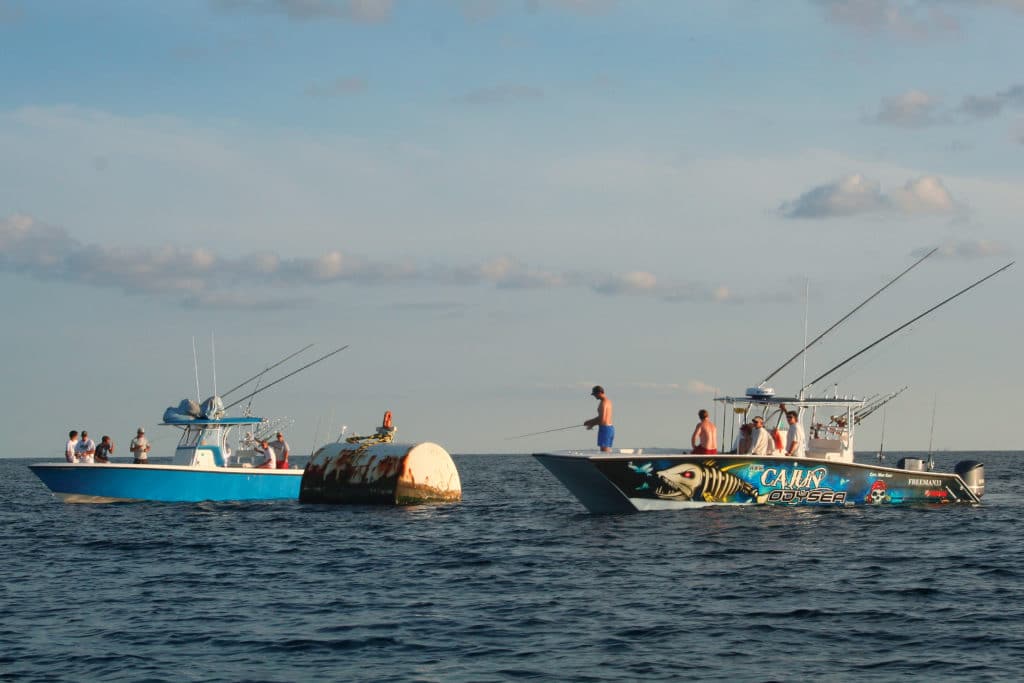
Off the Texas Gulf Coast, target kings around oil and gas rigs, buoys, behind anchored shrimp boats, along rips, under birds and around pods of baitfish anywhere from 15 to 50 miles offshore, in clear, dark-green water. Capt. Platt, one of the top tournament anglers on the Gulf Coast, says he gets the most bites from the surface down to about 50 feet. He usually pulls two live hardtails at once, setting them back some 40 to 60 feet off the transom and resorts to bump-trolling to cover various depths with the live baits, a tactic that often produces some real smokers.
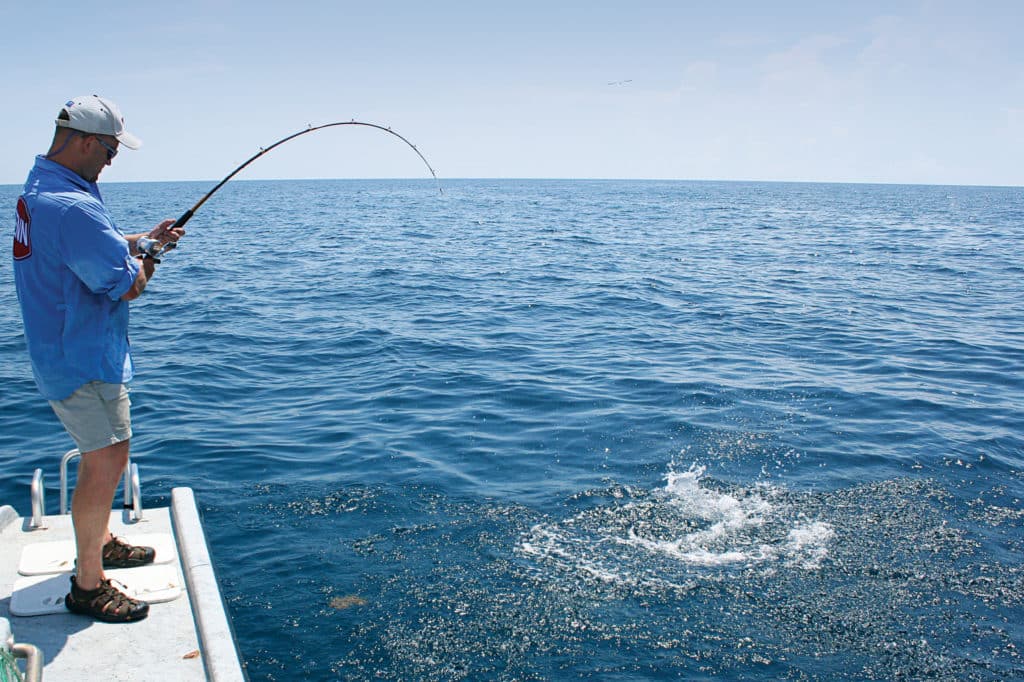
When targeting kingfish, it’s best to come rigged and ready. Rigging in bumpy seas is a challenge, and you don’t want to miss the bite because you are still making leaders. Carry several rods to cover all the bases. A good rule of thumb is two rods rigged with topwater lures, two rigged for trolling and another two for fishing either live or dead baits.
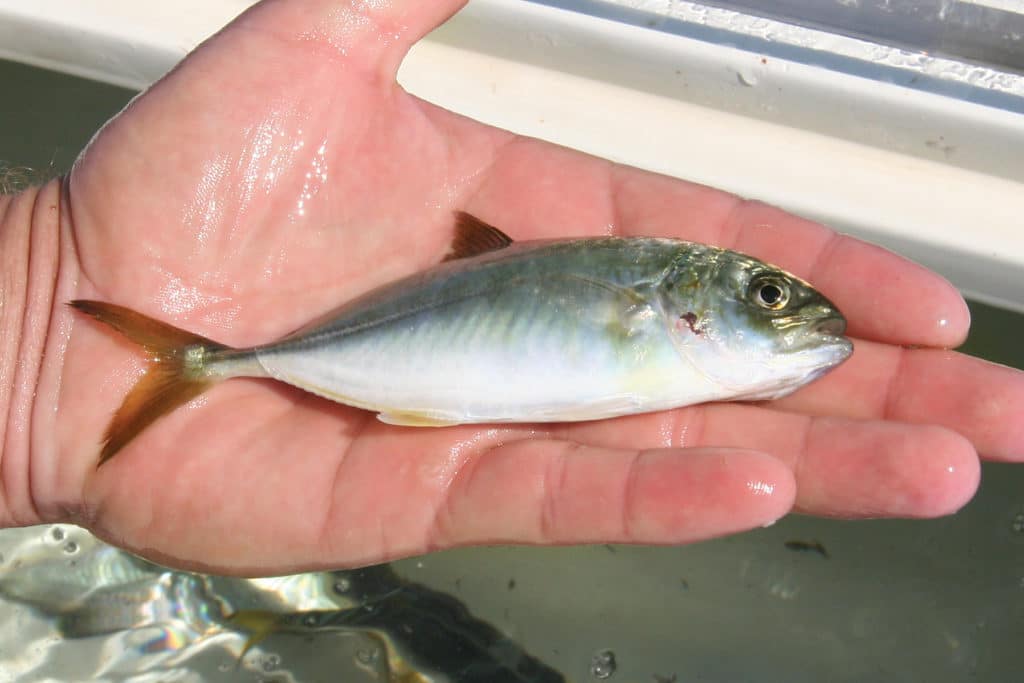
Live baits, especially small, freshly caught pogies and hardtails, are worth their weight in gold when kings are the intended target. Pogies typically congregate in big schools roaming in open water, and they can be cast-netted or caught on small sabiki or gold-hook rigs (a leader with five or more hooks rigged on droppers and a sinker at the end). Hardtails tend to stick closer to structure. Threadfin herring, more delicate, require good flow in the livewell and a minimum rate of 1 gallon of water per bait to survive. Hardtails are hardier, but the ideal size is 8 to 10 inches, which requires ample livewell space to carry the 20 baits recommended for a day of kingfishing.
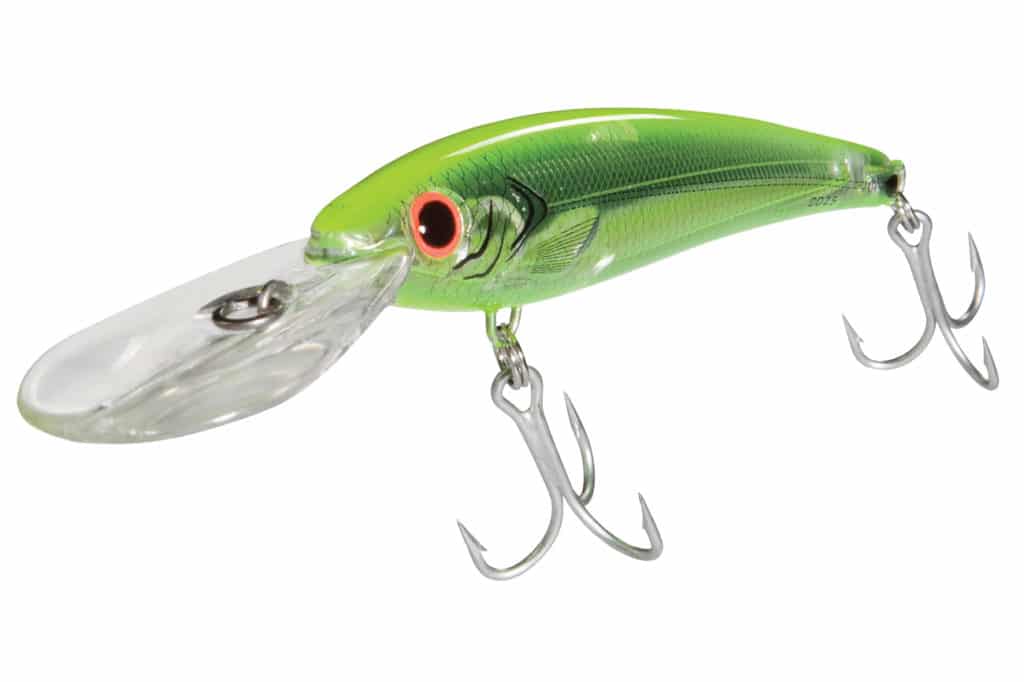
TACKLE BOX: 6- or 8-inch Bomber Certified Depth in bonito, google-eye or silver-mullet pattern for deeper trolling.
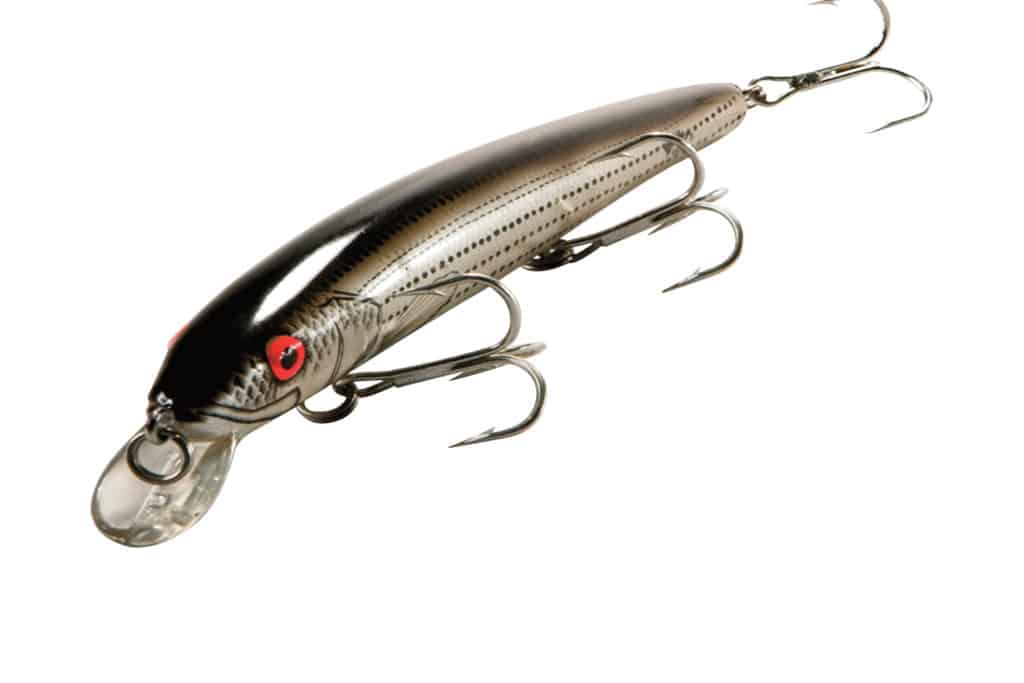
TACKLE BOX: 6-inch Bomber Heavy Duty Long A
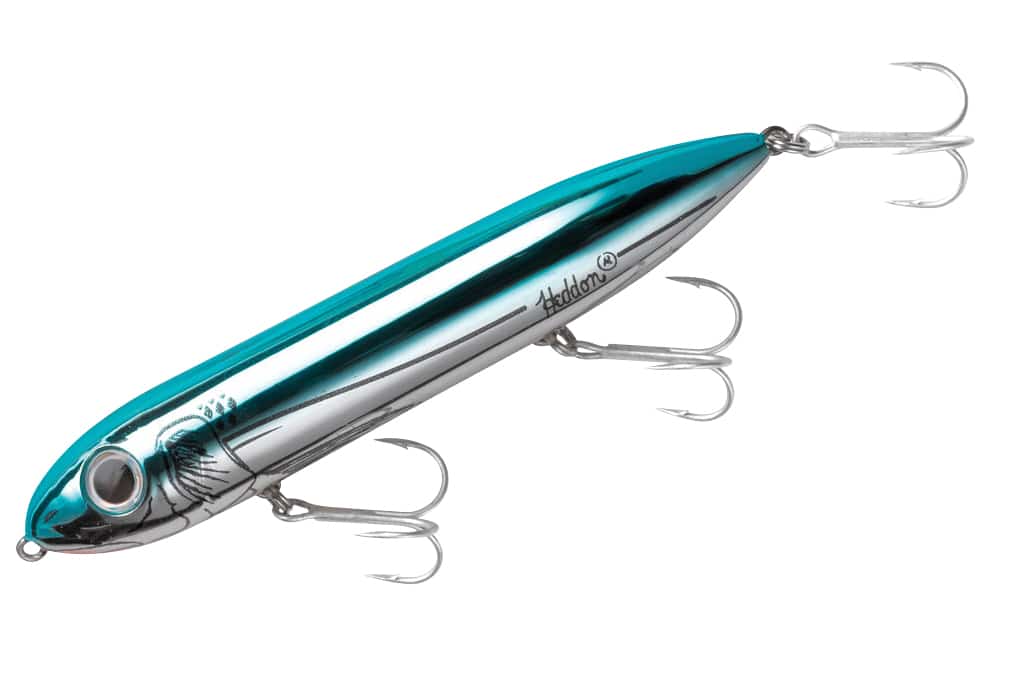
TACKLE BOX: Heddon Super Spook in bone, blue-and-silver, or chartreuse for topwater
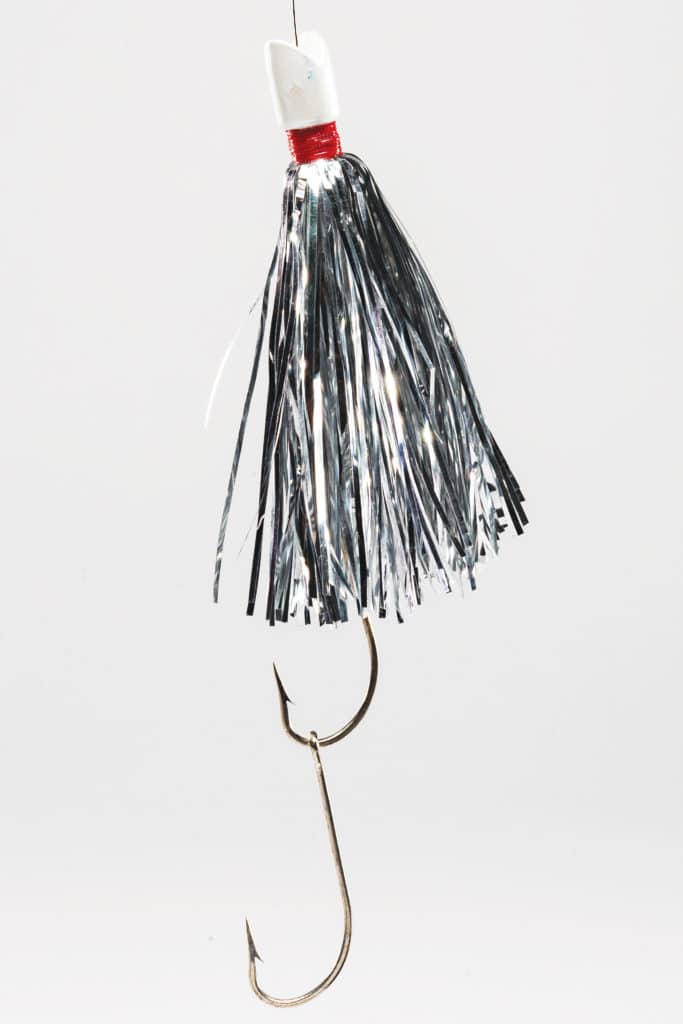
TACKLE BOX: Bomber J-Duster King Rig

